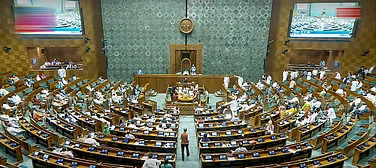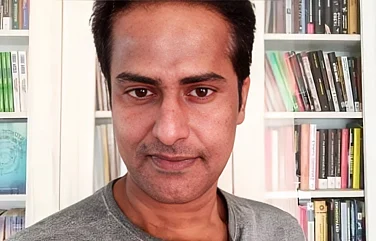Members of Greenpeace India on Friday arrived at the Central Pollution Control Board (CPCB) office to demand immediate revision of the National Ambient Air Quality Standards (NAAQS) of India. The assembly included working women cyclists of the Power The Pedal community, mothers, students, environmental activists and public health advocates.
With placards and banners saying, “Air Pollution Se Azadi” (freedom from air pollution), “Raise Your Standards” and “Clean Air is a Fundamental Right”, the citizens attempted to grab the attention of policymakers while raising awareness about the limitations of existing National Air Quality Standards.
Demanding transparency and accountability from the CPCB in its decision-making processes, the participants are also generating support for the ongoing petition addressed to Chief Minister Arvind Kejriwal demanding better transportation systems for cleaner air.
Over the past week, Greenpeace India volunteers visited many of Delhi’s iconic locations wearing Hazmat suits and gas masks to raise concerns about the capital’s hazardous air quality.
India’s annual concentration standards for pollutants continue to be 40 µg/m³ for PM2.5 & NO2 – a figure eight times higher than WHO’s standards of 5 µg/m³ for particulate matter and 10 µg/m³ for N02.
In 2021, WHO revised its Air Quality Standards based on the latest scientific insights following which, in April 2022, Greenpeace India sent an open letter along with a petition signed by over 10,000 citizens to the CPCB demanding urgent revision of India's Air Quality Standards. However, the organisation alleged that they were yet to receive a response or an update on when the NAAQS will meet the latest guidelines.
In a press release, Amruta S. Nair, Climate and Energy Campaigner at Greenpeace India said that the current standards do not reflect the latest science on the impacts of air pollution on human health, especially on vulnerable groups such as children, senior citizens, women, daily wage labourers - especially outdoor labourers, sexual minorities and more. "Air pollution is becoming a huge factor in out-of-pocket expenditures, which is aggravating inequalities in society. Unfortunately, the existing standards offer politicians and policymakers leeway to ignore such a big health emergency," she said.
However, Avinash Chanchal, Campaign Manager at Greenpeace India, said that the CPCB has accepted the letter and assured that they would be updating the air quality standards shortly. "We are going to continue reminding them regularly until it is done. It is also very important that the action against air pollution is holistic and all of us do our bit to fight it. With effective monitoring and assessment of the situation, we will be able to devise better transportation solutions that can help clean our air and build liveable cities," he noted in a press release.






















